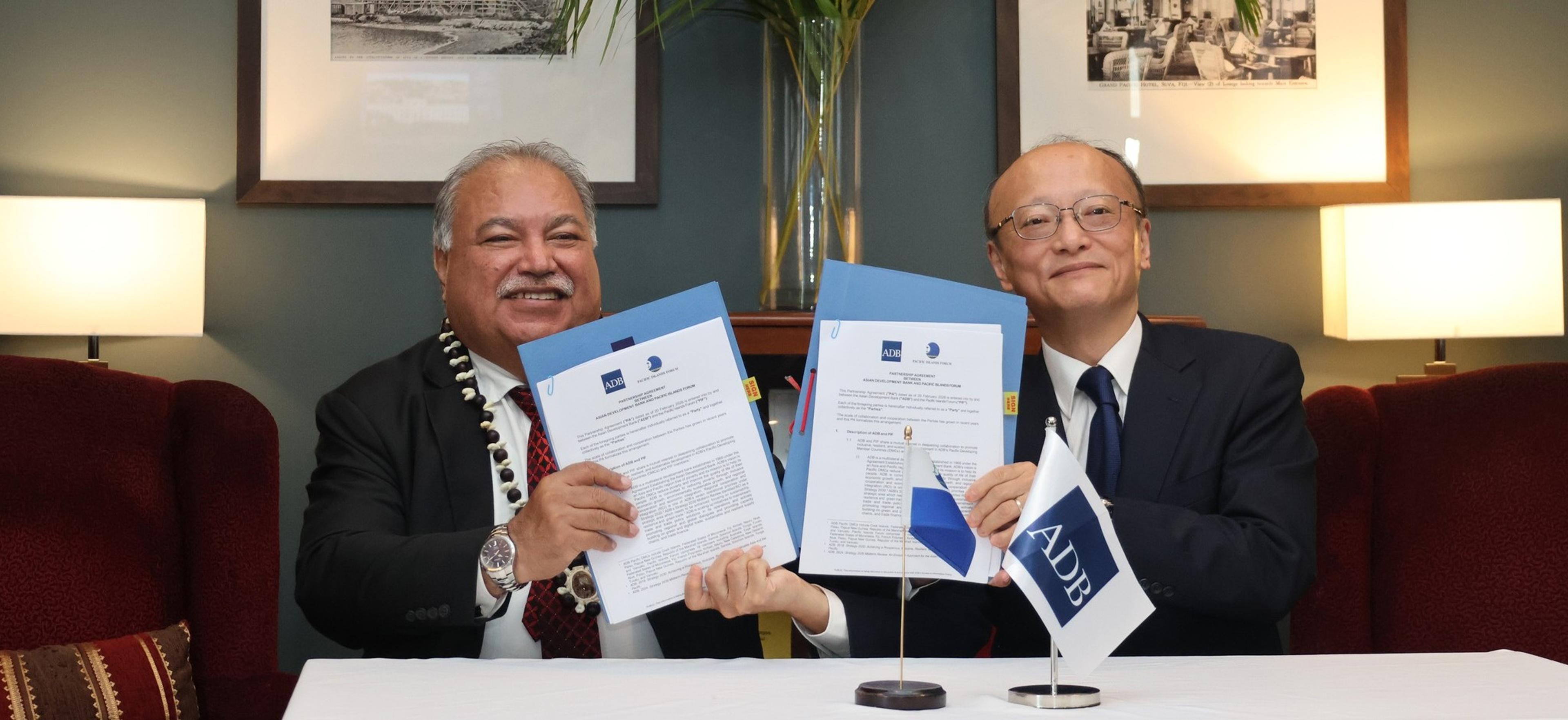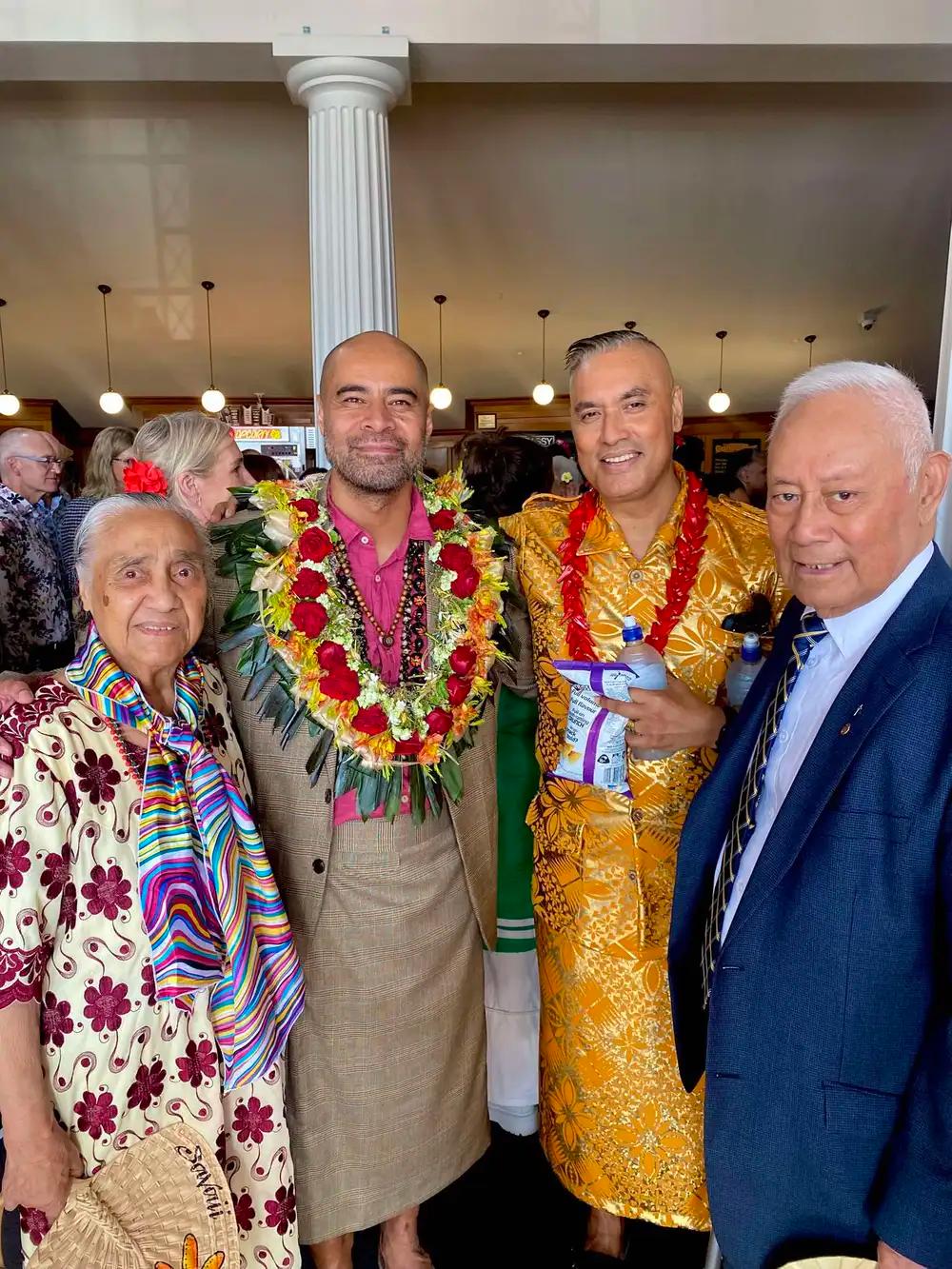

Award-winning actor and writer Anapela Polata'ivao ONZM plays music teacher Mareta Percival in the NZ Box Office hit Tinā.
Photo/Supplied
Tinā: Heartfelt Sāmoan film soars to $5 million Box Office success
Now among NZ’s top 10 most successful films, the beloved local drama continues its record-breaking momentum.


Time for an Indigenous State of Origin? The All Stars game shows who really powers the NRL



Asian Development Bank expands Pacific footprint with Suva hub and new PIF agreement

Time for an Indigenous State of Origin? The All Stars game shows who really powers the NRL


Stamping its mark as a powerful story of cultural triumph in Aotearoa New Zealand cinematic history, Tinā has hit $5 million.
In its seventh release week, the locally made and Pacific-led film has earned $5,030,777 to date, with over 321,952 ticket sales.
Tinā’s emotional resonance with viewers has helped secure the largest release footprint for a Kiwi film, with screenings at 128 locations across New Zealand and the Pacific including, Papua New Guinea, the Cook Islands, Fiji, and Sāmoa.
Director, writer, and co-producer Miki Magasiva says he is overwhelmed by the reception his film has received from cinemagoers.
"No words, just gratitude, thank you Aotearoa, this is a massive honour for us,” Magasiva says.
“A wonderful surprise and huge vote of confidence for our entire team, fa’afetai tele lava.”
People power
Tinā ranks as the third-biggest opening week of all time for a New Zealand film, behind Hunt for the Wilderpeople and Sione's 2: Unfinished Business.
Tinā co-producer Dan Higgins adds the film is one to see in cinema as a “shared experience and Kiwis are doing this in their thousands”.
“The success of the film is a testament to finding your audience, Tinā has found that in the Pasifika community and beyond,” Higgins says.
“It’s not just Kiwis wanting to see the film, with sold out Australian premieres and the American market screaming out for showings.”
New Zealand Film Commission (NZFC) CEO Annie Murray says the strong and consistent turnout reveals how much audiences crave authentic, relatable storytelling.
“The record audience numbers who’ve shown up for Tinā prove there’s very real affection and support for well-crafted and authentic stories from our homegrown filmmakers.
“The film’s success is a compelling case on how investing in stories which reflect who we are, leads to both critical and commercial success.”
Raw, real, and relevant
At the Auckland red carpet premiere, Anapela Polata’ivao, who plays the lead character Mareta Percival, told PMN News she wholeheartedly believed in the film’s portrayal of human connection.
“The film is quite spiritual, it's about real connectivity among humans and that everything that happens, happens for a reason - and that there are lessons learned in life,” Polata’ivao says.
Following its release, Tinā has also anchored its position in New Zealand film history by entering the Top Ten Most Successful Kiwi Films list at number six:
- Hunt For the Wilderpeople (2016) - $12,207,699
- Boy (2010) - $9,322,000
- The World’s Fastest Indian (2005) - $7,059,147
- Once Were Warriors (1994) - $6,801,471
- Whale Rider (2003) - $6,496,371
- Tinā (2025) - $5,030,777
- Sione’s Wedding (2006) - $4,075,000
- What Becomes of the Broken Hearted (1999) - $3,201,000
- What We Do in the Shadows (2014) - $2,595,000
- Footrot Flats (1986) – $2,400,000

Dr Ete with Tinā director Miki Magasiva (second from left) and his parents the Retired Reverend Elder Risati and Fereni Ete at the Wellington premiere. Photo/Massey News
Madman Entertainment CEO Paul Wiegard says the milestone is a clear indication audiences are drawn to authentic storytelling grounded in raw and real emotions.
“The success of Tinā at the New Zealand box office is testament to investing in films that reflect the audiences’ life experience on screen,” Wiegard says.
“Kudos to the New Zealand filmmaking team for celebrating cultural heritage, hope, and the transformative power of storytelling.
“The character of Mareta is a powerful role model, and one that cinemagoers have engaged with whole-heartedly.”

A scene from the movie, Tinā. Photo/Supplied
Connection through music
More than a cinematic experience, Tinā is a modern-day Sāmoan cultural pillar spotlighting how music and sound is interwoven in the fabric of Pacific identity.
The film’s emotional resonance is elevated by the musical insights of Te Kunenga ki Pūrehuroa Massey University Associate Professor Dr Igelese Ete. His arrangements helped bring the emotional depth, and breathe life and sincerity into the narrative.
Massey News writes Dr Ete had known the late Pua Magasiva, the younger brother to Miki Magasiva and who the film is dedicated to, a prominent and influential figure among Sāmoan and New Zealand media industry.
And after Miki reached out regarding the music production, Dr Ete felt compelled to be involved.
Tasked with preserving the cultural integrity of the film, Dr Ete infused his choral arrangements with Sāmoan influences, partnering with Pacific musicians to create a soundscape true to the story’s roots.
Listen to a Pacific Days interview with Dr Ete on Facebook.